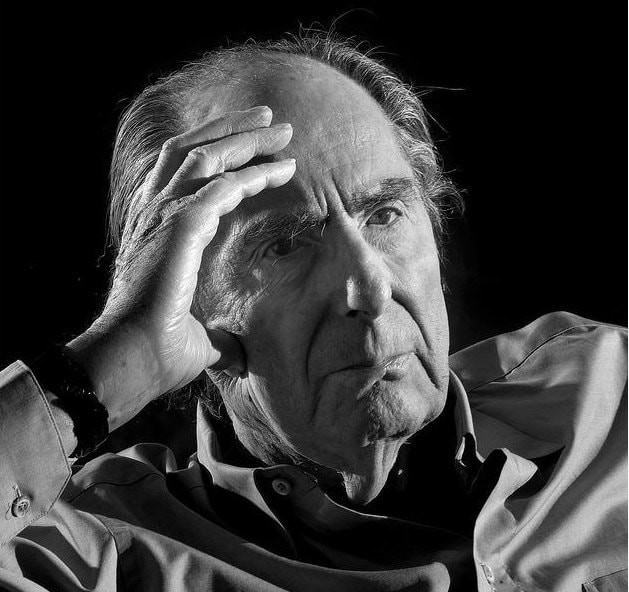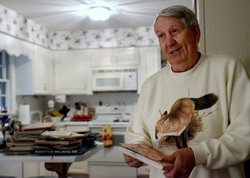In 1969, critics didn't quite know how to respond to a satire on sex, in particular when the sex was explicit, but the book accomplished what it was supposed to. It defined Philip Roth as an iconoclast.
In keeping with his role as an iconoclast, Roth was also politically outspoken.
In an interview published in the New York Times, Roth called Trump “a massive fraud, the evil sum of his deficiencies” and “devoid of everything but the hollow ideology of a megalomaniac.” In more literary terms, Roth accused Trump of “wielding a vocabulary of seventy-seven words that is better called Jerkish than English.” Trump was “humanly impoverished” and “ignorant of government, of history, of science, of philosophy, of art, incapable of expressing or recognizing subtlety or nuance” and “destitute of all decency." 'Nuff said.
In addition to his pithy remarks about Trump, it's worth listening to Roth's observations about writing. As with politics, Roth puts things in perspective.
"I began to write stories. The first ones were terrible, but then it got better."
"All you have to do is attach one word to the other."
“Writing is frustration – it’s daily frustration, not to mention humiliation. It’s just like baseball: you fail two-thirds of the time.” (The New York Times.)
“I work all day, morning and afternoon, just about every day. If I sit there like that for two or three years, at the end I have a book.” (The Paris Review.)
“The novelist’s obsession, moment by moment, is with language: finding the right next word.” (Stanford University)
“Literature isn’t a moral beauty contest. Its power arises from the authority and audacity with which the impersonation is pulled off; the belief it inspires is what counts.” (The Paris Review)


 RSS Feed
RSS Feed